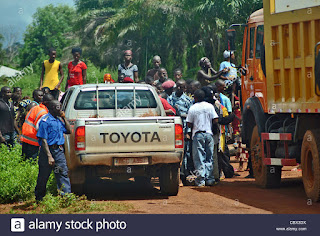Violence: the New Normal for Fourah Bay College Clubs, Fraternities and Sororities

Alhassan Jalloh, a former student at Fourah Bay College (FBC), graduated in the 1990s. Comparing the level of violence on campus now to his time at FBC, he said it is a "totally new phenomenon." Club initiations were "a bit physical but not in this kind of way,” he said. Alhassan, whose cousin fell victim to (violent hazing) said that when visited his old club during a trip from the United States, he found things were different from the way it used to be. He blamed the present scenario on post-war mentality. Dr. Edward Nahim, the only Sierra Leonean psychiatrist for years, defined violence as: “infliction of physical or psychological harm on an individual for him or her to feel severe pain or discomfort.” He said that though student violence is not new, the war and (mind-altering) drugs have accelerated the rates of violence among students. He pointed out that the main reason for students embarking on violence is drug abuse. “I spoke a lot about drug abuse at the u...


